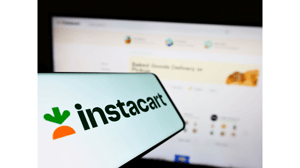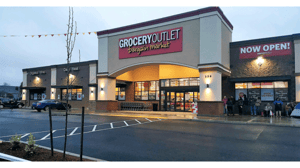Service Solutions: Sales Agencies ExpandService Solutions: Sales Agencies Expand
Sales and marketing agencies evolve to become more holistic solution providers connecting CPG and retail
August 20, 2012
As CPG companies have continued to outsource more of their retail sales and other functions to sales and marketing agencies, those providers have also been expanding on their own into new channels and with more services for their clients.
“The weak economy and profit pressure on CPG companies is making our role in the industry more valuable than ever,” said Tanya Domier (right), president and chief operating officer, Advantage Sales and Marketing, Los Angeles. “As manufacturers seek not only increased efficiencies, but effectiveness in their go-to-market strategy, the SMA becomes the logical partner in both of these endeavors.”
As the sales and marketing agencies expand with a broader array of services and into more retail channels, and as they grow their relationships with retailers, they have continued to evolve as more holistic providers of solutions for their clients.
Read more: Advantage Names Domier President
Plano, Texas-based Crossmark, for example, has greatly expanded its in-store product demonstration capabilities, deepening its relationships with supermarket operators and enhancing its ability to help both the retailers and its vendor clients grow sales.
 “All three of the national agencies are redefining what a sales and marketing agency is,” said Joe Crafton (left), president of Crossmark. “We’re in the game of influence, not just execution.”
“All three of the national agencies are redefining what a sales and marketing agency is,” said Joe Crafton (left), president of Crossmark. “We’re in the game of influence, not just execution.”
The same trends have been reflected among the regional sales and marketing agencies, where companies like Johnson O’Hare in Billerica, Mass., have expanded into new markets and added more category management staff.
Among the significant developments in the past year has been the move into the foodservice channel by two of the nation’s largest sales agencies, Advantage and Jacksonville, Fla.-based Acosta Sales & Marketing.
Advantage late last year became an equity partner in Advantage Waypoint (AWP), a newly formed sales and marketing company focused on the foodservice industry. AWP united nine foodservice sales agencies around the country to provide national coverage in that space, and has since acquired three additional companies.
“Waypoint clients now have a consistent go-to-market model available to them nationally that provides them increased speed and strategic alignment at all customers,” Domier told SN.
In addition, Advantage this month said it has entered into a strategic relationship with Walgreens, where Advantage will be managing and executing in-store merchandising activities for all of its vendor partners.
Meanwhile, Acosta has also entered the foodservice area with the acquisition of two large foodservice sales and marketing agencies on the East Coast — Venture Sales Group in the region from Virginia through Maine, and Quality Sales and Marketing in the Carolinas — and has embarked upon a strategy to roll up additional brokers in that space throughout the country.
 “Channel expansion has been good for us,” Robert Hill (right), president and chief executive officer, Acosta, told SN.
“Channel expansion has been good for us,” Robert Hill (right), president and chief executive officer, Acosta, told SN.
He cited the company’s expansion into the military channel in 2008 and the natural and specialty channels a few years before that.
The foodservice channel, he said, makes sense because most of Acosta’s CPG clients are in both retail and foodservice, and most of them outsource some services.
“I think it’s a channel that’s ripe for consolidation, and a channel that’s ripe for training and more technology investments,” Hill explained. “It’s kind of fragmented today — most CPG companies can have anywhere from a dozen to 40 different sales agencies.”
Hill said Acosta intends to continue rolling up foodservice sales agencies around the country, a process that he said will likely be completed in the next 12 months.
“I think our clients will be receptive to that as long as we build up a quality offering,” Hill said.
Currently, many of the agencies in the foodservice space are small, family-owned businesses in limited geographies. “It’s difficult for them to make significant investments in training and technology and systems, so that’s what we’re bringing,” Hill explained.
Acosta named Mark Hayden, a 21-year veteran of food-industry concern Lamb Weston, to head up Acosta’s foodservice operations.
Related profile: Robert Hill Among SN's 2012 Power 50
“Like our core business, it’s a people business, and we are really investing in people who are passionate about the channel,” Hill said. “This is really about a holistic strategy, with the right people in charge.”
Hill drew similarities between the highly fragmented foodservice sales and marketing landscape and the way the retail sales and marketing agency field looked 20 years ago, before it was rolled up into the national agencies that exist today.
“I think it’s important to be in the foodservice channel, because there is blurring between foodservice and c-stores and grocery,” he added. “Some of the work being done in the grocery deli is being done by the foodservice agencies.
“I think the c-store and traditional grocery and foodservice channels are going to blend over time, so you better be in all those channels to effectively help a manufacturer.”
More Robust Relationships
Unlike its two national sales agency rivals, Crossmark has not acquired a stake in the foodservice area, but instead has invested in the expansion of its in-store product sampling operations.
In February the company completed the acquisition of New Concepts in Marketing (NCiM), which provided in-store sampling in 48 different retail chains. The acquisition made Crossmark the largest in-store marketing services company in North America, according to Crafton.
“With these 48 accounts, we have more interaction with the marketing departments at these companies, which makes us a better sales agency,” he told SN. “It also connects us to the brands, because now that we have aggregated these businesses, we can do customized programs for the brands.
“Our goal is to have a more robust relationship with the CPG companies.”
Since the acquisition, Crossmark has added two new retail accounts — A&P and Brookshire Grocery Co. — to the NCiM division.
Crossmark already operated Shopper Events, a joint venture with Advantage that provides in-store sampling at Wal-Mart.
The company is retaining the NCiM name and keeping its management, Crafton explained. One significant change Crossmark did make was to convert the contract workers that NCiM employed to regular employees, a process Crafton likened to “changing from a steam engine to an electric engine without pulling over.”
With 55 previous acquisitions under its belt, however, he noted that merging acquired companies has become a “core competency” for Crossmark.
He said Crossmark envisions leveraging NCiM’s grocery know-how with Crossmark’s back-room technology, such as its recruiting app.
“We are keeping what makes them special, but we are going to leverage what Crossmark does better,” Crafton explained.
In addition to the NCiM acquisition, Crossmark is also unveiling a new division that combines some of its marketing services, called Brand Master.
“It’s an activity NCiM performed for the brands, but now we are going to formalize that and create a new division,” Crafton explained. “There’s a big need there as manufacturers look to shift their dollars from mainstream media to in-store media. Using analytics to identify the right stores, and the right product at the right time is a big deal.”
While in the past, in-store product demos were often conducted in the top-volume stores, Crafton said companies are becoming more strategic, using analytic tools to identify the optimum locations for such activities.
“So, with all the analytic tools we have at Crossmark, we are leveraging our Nielsen relationship and our retailer relationships and our other data sources to target the right stores,” he explained.
Crossmark has also made a large investment in a direct-marketing company called Dialog Marketing Services, which it plans to leverage to help sell products into smaller retailers using online and telesales.
Adding Insight-Based Services
Agencies are also expanding their insight-based services though acquisitions and expansion, such as Acosta has done with its acquisitions of Mosaic and Griffin.
“Griffin helps us enhance the ‘strategic advisors’ aspect of our business,” said Hill of Acosta. “It helps us focus on growth strategies for our clients, with shopper and marketing insights, brand positioning, and adding consultancy-type services to our clients.”
Mosaic, meanwhile, gives Acosta a broader array of marketing solutions.
“One of the things they focus on that we were not involved that heavily was experiential marketing, digital design and production, and social media,” Hill explained.
Read more: Acosta Plans Ohio Text Kitchen
The acquisitions “brought us some capabilities that are going to be important to our clients,” he said.
At Advantage, Domier said one of the most significant developments at that company — in addition to the expansion into the foodservice channel — has been an increased focus on formalized training for sales personnel.
“Sales force talent management within the CPG industry has really changed,” she said. “Market factors such as the growing importance of shopper data analysis have made it necessary for today’s top sales managers to have an advanced skill set and general-management mindset.
“They proactively mine through panel data to identify underperforming accounts and targeted opportunities. They scrutinize leakage trees and shopper insights metrics like buyer and trip conversion. They seek strategic cross-functional collaboration opportunities to help retailers achieve their marketing, supply chain and cost reduction goals.”
To address these and other functions, Advantage last year launched its Accelerated Career Experience entry-level training program in sales and marketing. The program graduated 50 personnel in June, and another 130 salespeople entered the program in July.
“At the same time, we have been hard at work developing a technology platform that gives our managers a faster way to uncover and apply insights, sales opportunities, analyze trade-promotion effectiveness and optimize distribution, pricing and assortment,” she said.
Like other sales and marketing agencies, Advantage also has continued to enhance its digital marketing capabilities to help engage shoppers, Domier explained.
For example, Advantage recently launched a proprietary mobile marketing tool, Mobile@Shelf, which utilizes 2D barcodes placed on marketing materials both in- and out-of-store.
The solution “provides retailers and brands alike the ability to deliver rich content and promotional offers that are optimized to work seamlessly on all mobile and tablet platforms,” Domier explained.
Content varies but can include product features and benefits, branded product recipes, video, and sweepstakes entry.
At Johnson, O’Hare, John Saidnawey, president and chief operating officer, said the increasing use of digital communications is reflected in the evolution of a marketing campaign the company runs. What began as a freestanding insert has now gone digital, with a microsite offering online coupons powered by SmartSource.com and featuring geo-targeted web and radio ads to drive shoppers to the site.
“The traditional way in which we and our clients have communicated with the consumer is changing, and everybody’s going digital,” Saidnawey explained.
JOH also has expanded geographically, with a new Pittsburgh/Cleveland division, and into the nontraditional channel with the acquisition of a nontraditional sales and marketing agency called IBS.
“We’re a regional broker, so we’re all about being local and understanding local markets,” Saidnawey explained. “You hear a lot of talk from retailers today about really understanding and catering to the neighborhood.
“Even multinational chains want to cater to each individual neighborhood, and that’s what we’re all about, being tapped into the local tastes and local trends.”
Overall, the sales and marketing agencies remain bullish on their growth prospects, as CPG companies continue to outsource some services to them.
“It’s been a very busy year, and business is solid,” said Saidnawey. “We continue to focus on the Northeast, where we want to be the best, and we are being opportunistic and strategic to grow in areas that meet the needs of our clients and the retailers.”
Read more: Crossmark Buys Product-Demo Firm
Crafton of Crossmark said that with outsourcing having proven itself as a cost-effective strategy, CPG companies will continue to turn to sales agencies to help them expand their margins. With health care reform looming in 2014, he said it becomes even more likely that suppliers will look for ways to minimize their own labor costs and shift them onto companies that have more expertise in that area.
Suppliers will direct more and more of their retail customers to be handled by sales agencies, he predicted, retaining only a handful of top retailers for their in-house direct sales teams.
“Some manufacturers went too deep with their customer business teams, and that’s just a luxury and a holdover from the traditional direct sales force that is changing,” Crafton said. “A lot of CPG companies have been hanging on to too many customers.”
About the Author
You May Also Like




